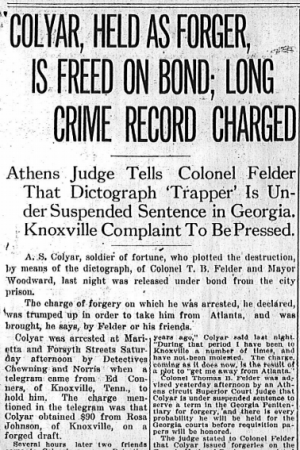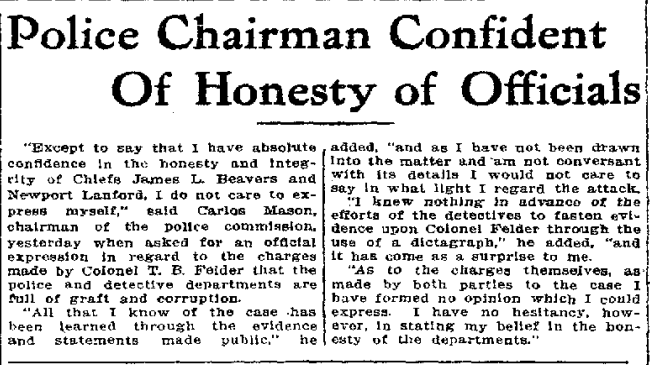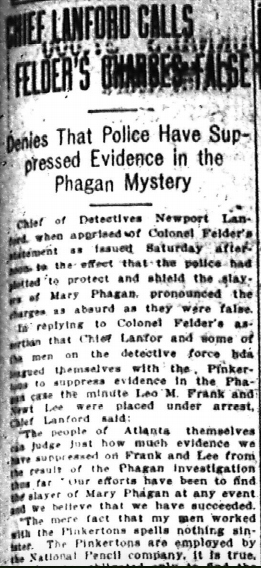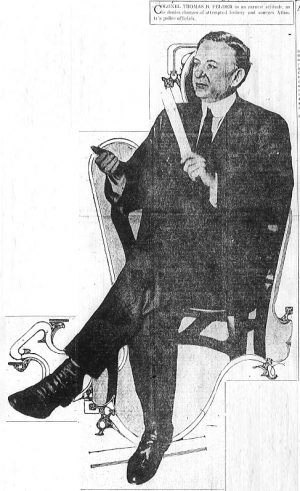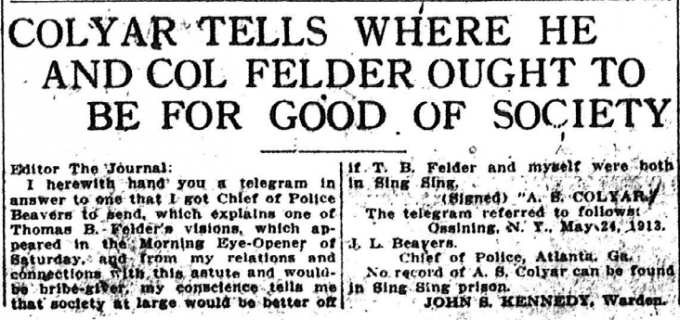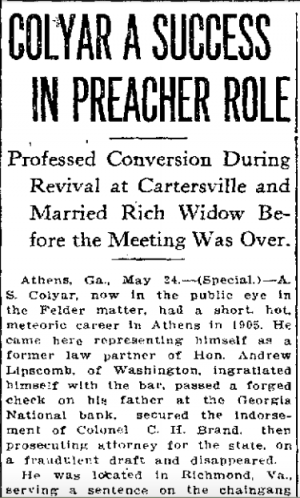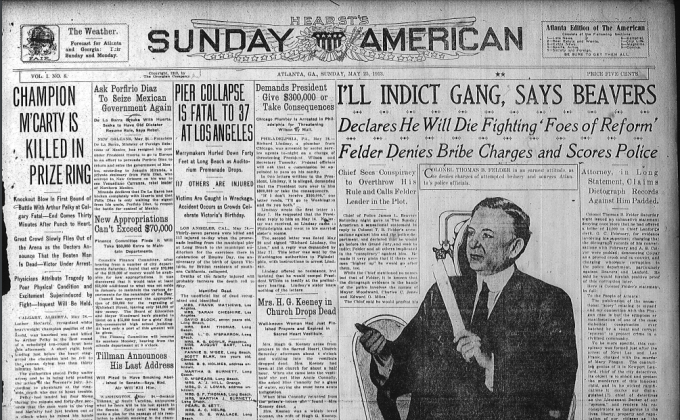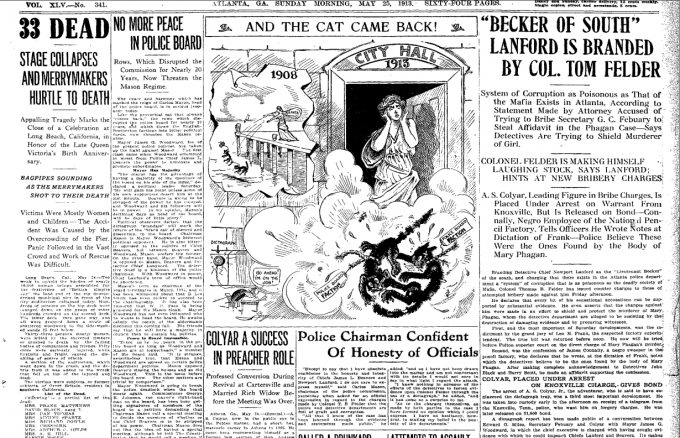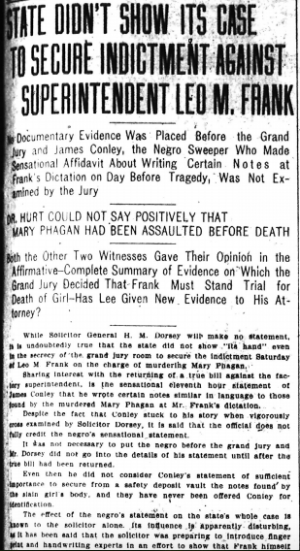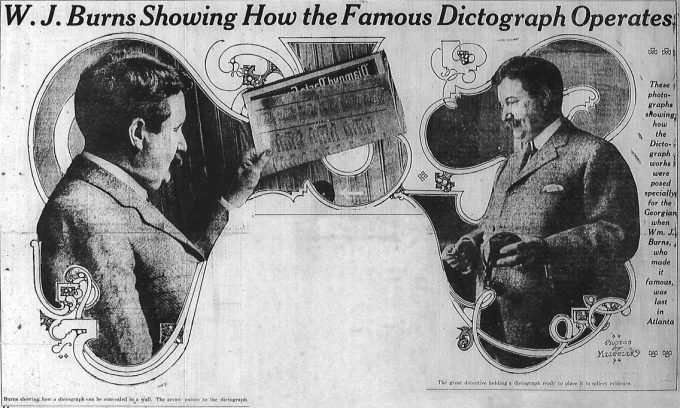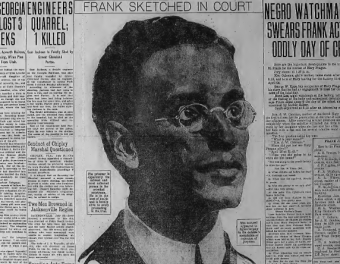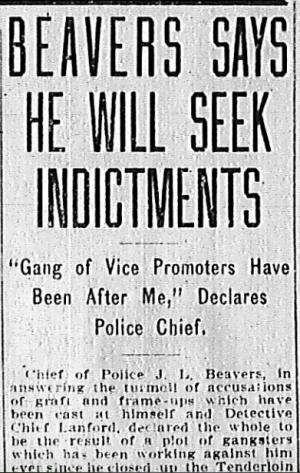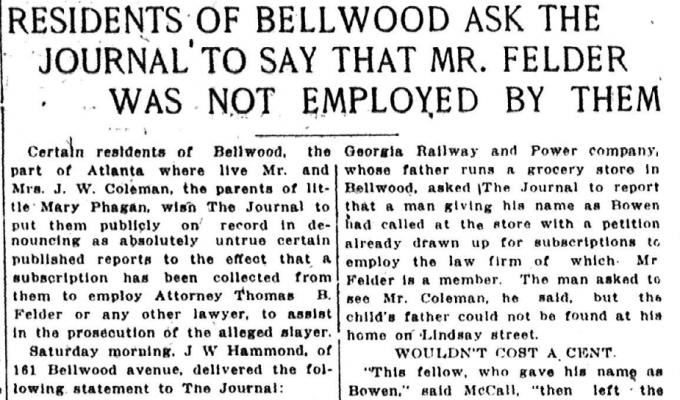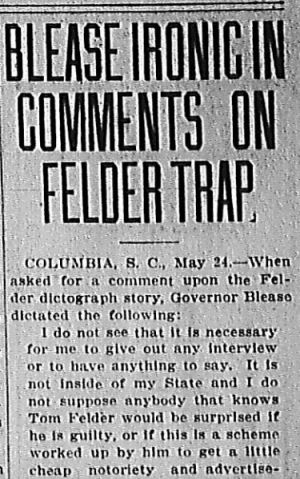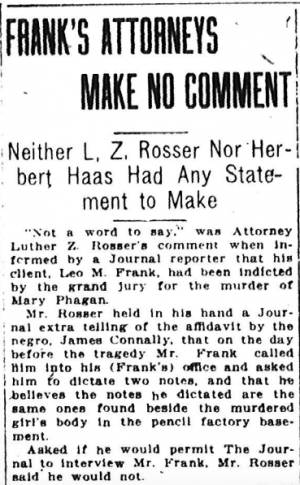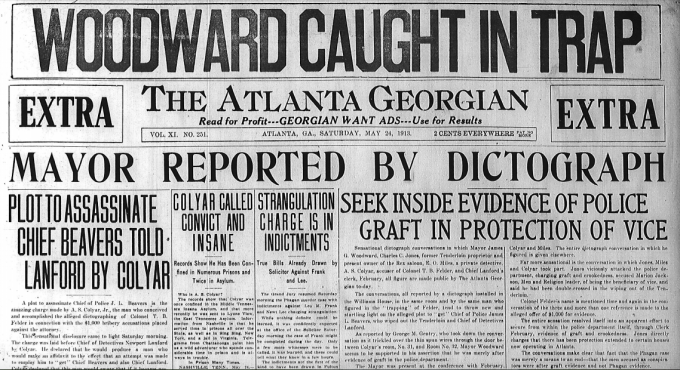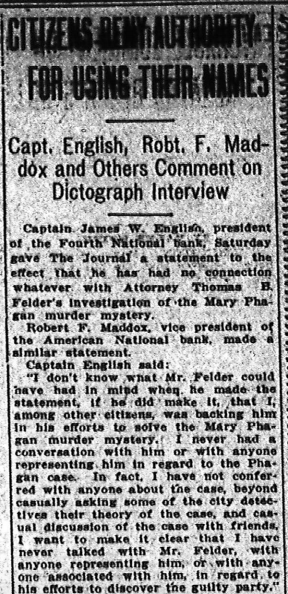 Another in our series of new transcriptions of contemporary articles on the Leo Frank case.
Another in our series of new transcriptions of contemporary articles on the Leo Frank case.
Atlanta Journal
Sunday, May 25th, 1913
Capt. English, Robt. F. Maddox and Others Comment on Dictograph Interview
Captain James W. English, president of the Fourth National bank, Saturday gave The Journal a statement to the effect that he has had no connection whatever with Attorney Thomas B. Felder’s investigation of the Mary Phagan murder mystery.
Robert F. Maddox, vice president of the American National bank, made a similar statement.
Captain English said:
“I don’t know what Mr. Felder could have had in mind when he made the statement, if he did make it, that I, among other citizens, was backing him in his efforts to solve the Mary Phagan murder mystery. I never had a conversation with him or with anyone representing him in regard to the Phagan case. In fact, I have not conferred with anyone about the case, beyond casually asking some of the city detectives their theory of the case, and casual discussion of the case with friends. I want to make it clear that I have never talked with Mr. Felder, with anyone representing him, or with anyone associated with him, in regard to his efforts to discover the guilty party.”
Mr. Maddox said: Continue Reading →

